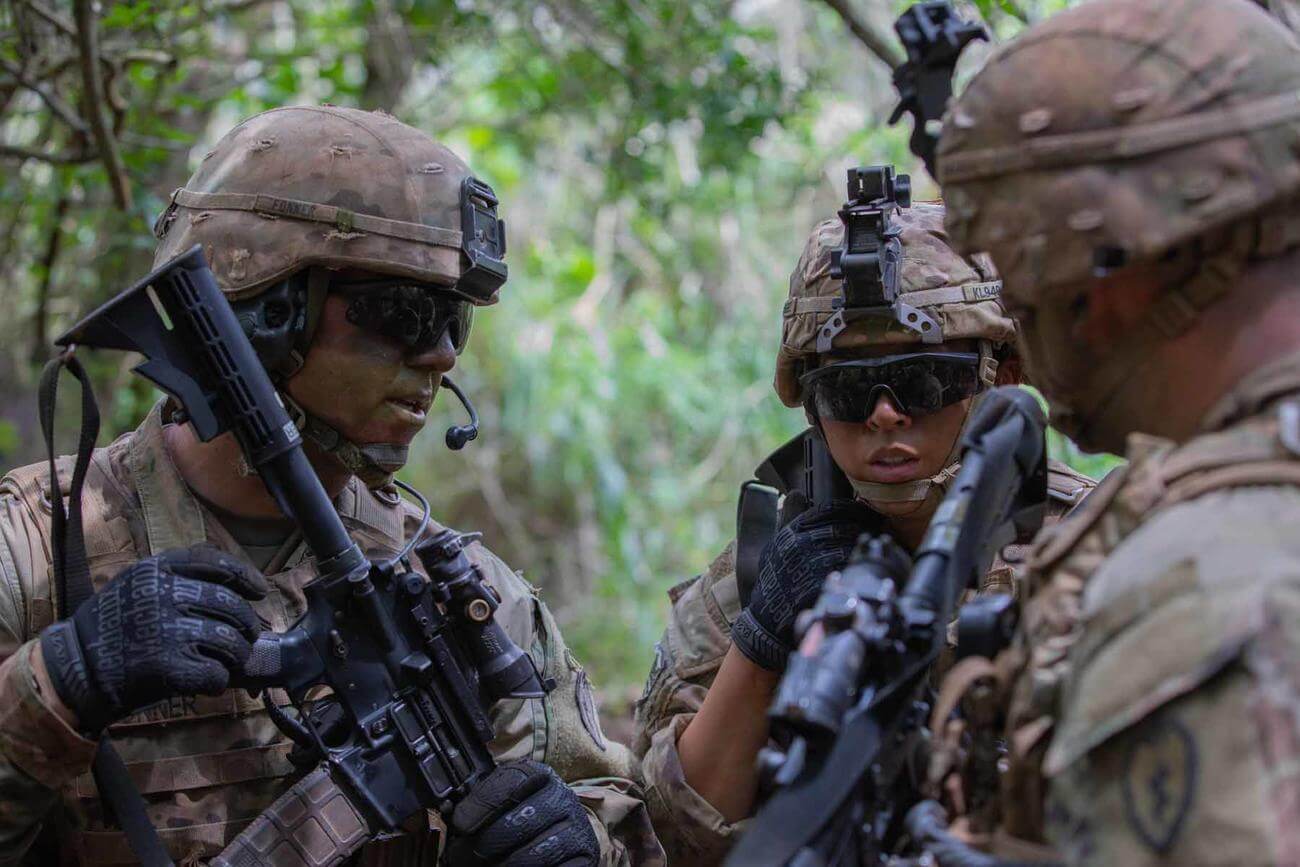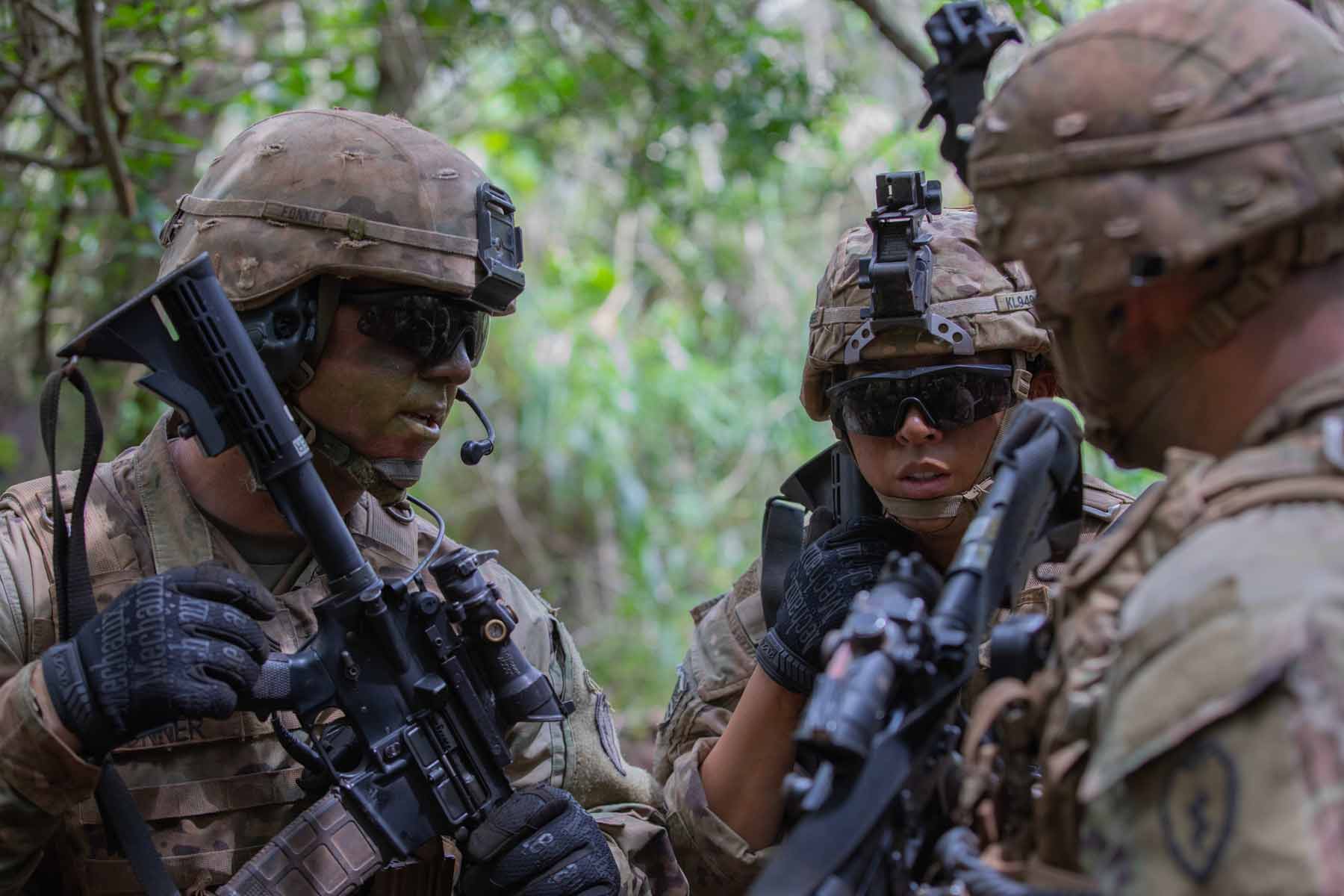

The Army on Thursday revamped how junior soldiers will move up to leadership positions, requiring all enlisted soldiers to first pin on the rank of corporal before they can become sergeants.
All soldiers with the rank of specialist who complete the Basic Leader Course, or BLC, and are recommended for advancement by a promotion board will be promoted laterally to corporal, according to new Army policy announced last month. BLC is a required Army school to transition troops from the junior ranks to noncommissioned officers.
Current corporals will need to qualify for promotion and complete BLC or else they will be reassigned as specialists.
Read Next: Democrats Raise Ethical Concerns Over GOP Donor’s $1 Million Funding of Border Deployment
The new policy, originally announced in early June and put in place Thursday, is the most dramatic overhaul of how enlisted promotions work since the Army implemented NCO evaluation reports in 2016. Making corporal a required rank to hold impacts all junior active-duty soldiers and won’t take effect for reservists and guardsmen until Oct. 1.
Corporals and specialists are both under the E-4 paygrade; that means a corporal, despite being considered a junior NCO and having more responsibilities, makes the same pay as a specialist. It is unclear whether the corporal rank will come with time-in-grade requirements or whether pinning on the stripes effectively will be a placeholder for the soldier to finish up their time as an E-4.
Because corporals and specialists earn the same pay, corporal was a relatively rare rank in the Army. Both ranks can hold junior leadership positions, typically as a team leader responsible for three to six soldiers. Previously, specialists were promoted straight to sergeant in most cases, skipping the corporal rank.
“The corporal initiative is designed to create a positive, visible welcome to the NCO Corps for soldiers that have proved themselves ready,” Sergeant Major of the Army Michael Grinston said in a tweet Thursday.
In a statement last month, Grinston said specialists are often serving as team leaders. He said wearing a corporal rank will be an easier way to identify junior leaders.
“We rely on junior leaders to build cohesive teams that are highly trained, disciplined, and mentally and physically fit,” Grinston said. “In many cases, a specialist is charged with that responsibility. This allows us to recognize their role as a noncommissioned officer and ensure they’re getting the coaching and mentorship they need to be successful.”
The Army also announced that troops must be recommended by a promotion board before attending BLC. That goes into effect June 1, 2022, for active duty and Oct. 1, 2022, for the National Guard and Reserves.
Promotion boards are an interview process for the soldier to proceed to the next rank. The process typically involves analyzing a soldier’s score on their physical fitness test, marksmanship performance and a quiz on Army policy and job-related skills.
— Steve Beynon can be reached at [email protected]. Follow him on Twitter @StevenBeynon.
Related: New Army Pilot Program Makes Company First Sergeant Selection More Rigorous
© Copyright 2021 Military.com. All rights reserved. This material may not be published, broadcast, rewritten or redistributed.
